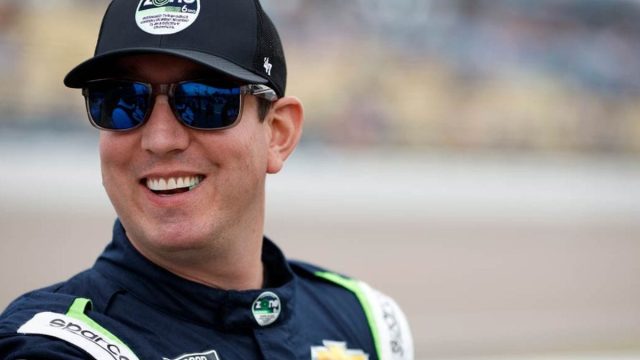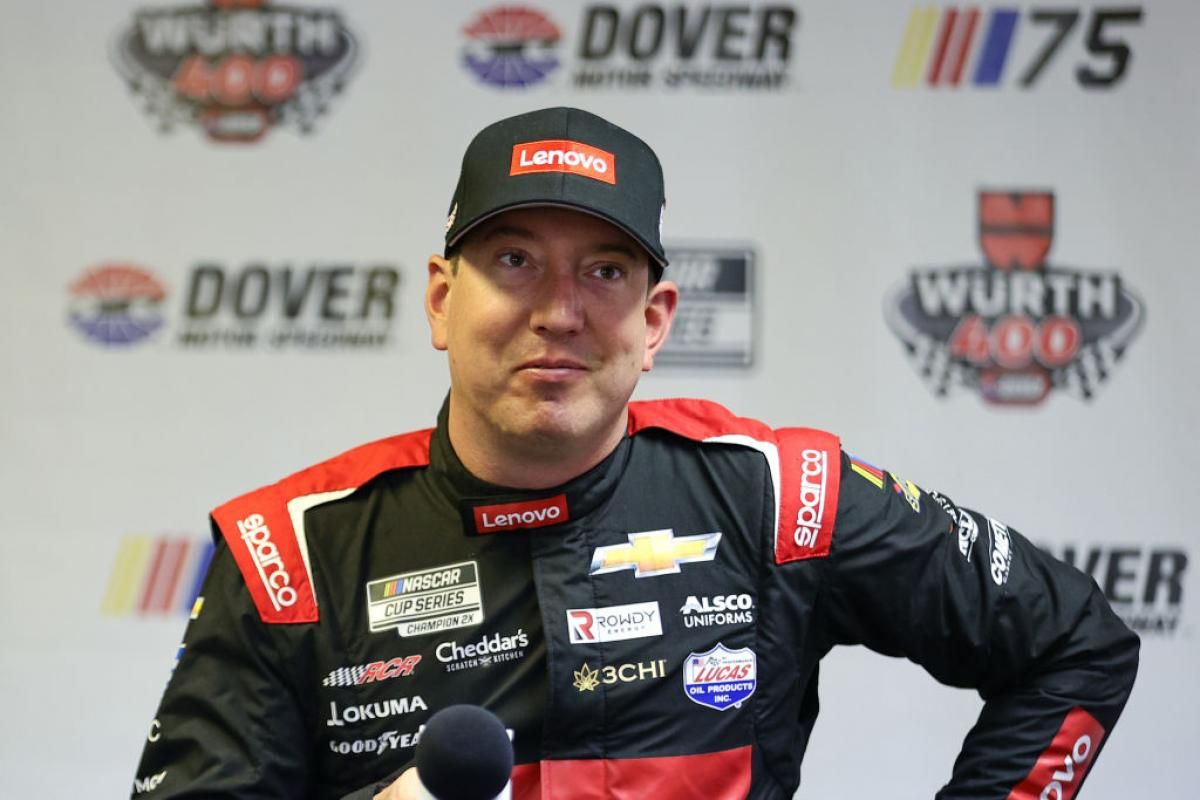Kyle Busch Joins NASCAR’s Elite 700 Club: Kyle Busch‘s entry into NASCAR’s prestigious ‘700’ Club marks a notable milestone in his career and invites a deeper examination of his impact on the sport. This achievement highlights his remarkable skill and adaptability across diverse racing series, and prompts a critical analysis of how his legacy will be perceived as the landscape of NASCAR continues to evolve. As the racing community reflects on his past victories, questions arise about his future path and the challenges he may face in maintaining relevance within a fiercely competitive environment.
Key Highlights
- Kyle Busch is the 19th driver in NASCAR history to achieve 700 career wins, encompassing all NASCAR-sanctioned series over 18 seasons.
- His milestone victory highlights his versatility, with 63 Cup wins and the highest number of Truck Series victories recorded.
- Busch’s achievement sparks discussions about legacy and the evolution of NASCAR, emphasizing the rarity of reaching this landmark.
- Historical trends show a decline in win rates for drivers after 700 starts, raising questions about Busch’s future competitiveness.
Milestone Achievement and Historical Context
Kyle Busch’s 700th Cup Series start not only marks a remarkable personal milestone in his racing career but also places him among an elite group of just 19 drivers in NASCAR history who have reached this impressive benchmark, emphasizing the tenacity and longevity required to excel in such a demanding sport.
This achievement transcends mere numbers, serving as a proof of Busch’s resilience and adaptability over nearly two decades of competition.
Reaching 700 starts is important; it encapsulates a path fraught with both victories and challenges. For Busch, the milestone is layered with historical context, bridging the gap between the past legends of the sport and the current era.
Tying with Buddy Baker, another stalwart of NASCAR, highlights the continuity of competitive spirit that has defined the series. Their shared accomplishment resonates with the essence of what it means to be a NASCAR driver—endurance, skill, and the unyielding pursuit of excellence.
As Busch competes in the Next-Gen era, his current performance may not reflect the dominance of his earlier years; however, the path to 700 starts demonstrates a broader narrative about the evolution of talent in NASCAR.
Statistical Trends of Drivers at 700 Starts
Reaching the milestone of 700 starts in the NASCAR Cup Series serves as an essential moment that often heralds a shift in a driver’s career path, as evidenced by statistical trends observed among previous elite competitors.
Analyzing the performance metrics of greats such as Jeff Gordon, Richard Petty, and Rusty Wallace reveals a notable decline in win rates and general competitiveness post-700 starts. Historically, only Richard Petty emerged as an anomaly, securing double-digit victories after hitting this milestone. In contrast, both Gordon and Wallace experienced a marked downturn in their ability to contend for wins, reflecting a broader trend that may suggest the cumulative wear of racing at such a high level.
The data indicates that, on average, drivers tend to win fewer races after reaching the 700-start threshold, with many failing to secure a victory in their milestone race itself. This statistical pattern raises important questions about the longevity and sustainability of success in NASCAR.
Factors such as age, evolving competition, and changes in team dynamics may exert considerable influence on a driver’s performance path following this critical point in their careers. As Kyle Busch joins this elite club, he must navigate these trends with a keen awareness of the historical context, all while working to defy the odds that suggest a decline in his competitive edge.
Fans’ Reactions and Predictions
Frequently engaging in discussions about Kyle Busch’s career path, fans have expressed a mix of skepticism and hope as they analyze his performance in the Next-Gen era and contemplate the potential for a return to form.
“We’re at the point where the next Busch win is probably his last. Those stats don’t inspire a lot of confidence that he can have another championship run.”
“I hope KB’s career lasts another 2-4 seasons.” – fans reaction
While Busch’s inclusion in the ‘700 Club’ marks a notable milestone, many supporters are left wondering if he can reclaim his former dominance. The prevailing sentiment suggests a cautious outlook toward his future prospects.
“Him hitting 700 starts is probably the only thing to celebrate so far this year 😬.” – fans’ reaction
Fans have taken to social media platforms to voice their predictions, often reflecting a blend of nostalgia for past glories and concern for the current course.
Key themes in these discussions include:
- Historical Context: Many fans reminisce about Busch’s 2019 championship, contrasting it with his recent struggles, leading to doubts about his future competitiveness.
- Statistical Analysis: Observations about declining performance metrics fuel the belief that Busch may be at a crucial point in his career, with some speculating that his next victory could be his last.
Opinions on Busch’s Career Trajectory and Current Performance
Amidst the mixed emotions of fans regarding Busch’s past achievements and current struggles, a closer examination of his career path reveals both the weight of his accomplishments and the challenges he faces in an evolving NASCAR landscape. With an impressive tally of 63 Cup wins and the highest number of victories in the Truck Series, Busch’s legacy as one of the most successful drivers of his generation is undeniable. His two championships cement his status as a future Hall of Famer, yet the complexities of his career course warrant a deeper exploration.
“To be fair the writing was on the wall for this last year. Kyles numbers as a whole were down compared to what everyone expects but the early wins masked it. After gateway last year that team was pretty bad the rest of the season and KB had a lot of wrecks and spins.” fans’ reaction
In recent seasons, Busch has encountered a notable decline in performance, particularly during the tumultuous 2024 season. This downturn raises questions about his adaptability in a sport increasingly defined by technological advancements and changing competitive dynamics. While his brash persona once commanded attention and divided fans, it seems that the very traits that once fueled his success may now hinder his ability to compete at the highest levels.
“I don’t think it’s impossible he wins again, even if it’s after 700 starts. A lot of things would need to go right, but I do think he can. He and RCR would obviously need to get their stuff together, or he’d need to leave for somewhere else.” – fans’ reaction
The sentiment expressed by fans, wishing for an extension of Busch’s career, reflects a broader desire to witness a resurgence from a driver whose past brilliance is still fresh in their memories. However, as the sport evolves, it becomes imperative for Busch to recalibrate and welcome new strategies to counter the fierce competition.
Future Prospects and Upcoming Challenges
As Kyle Busch navigates the tumultuous waters of his 2024 season, the urgent need for tactical adjustments becomes increasingly apparent if he hopes to revitalize his performance and secure a spot in the upcoming playoffs. With four regular-season races remaining, the stakes are higher than ever, especially following a disheartening 25th place finish at the Brickyard 400. The shift to Richard Childress Racing has not yielded the expected results, raising questions about the synergy between driver and team.
To overcome current challenges and capitalize on his experience, Busch must focus on several key areas:
- Data Analysis and Strategy: Leveraging performance data to identify weaknesses in both driving and team strategy will be essential.
- Team Cohesion and Communication: Ensuring seamless collaboration between Busch and his crew could improve on-track decisions and execution.
Despite the difficulty of his current season, the potential for a turnaround remains. Historical evidence suggests that even seasoned drivers like Busch can find their footing after a rough patch, provided they adapt and optimize their approach.
The next few races will serve as a significant litmus test for Busch and his team, determining whether they can transcend their current struggles and once again contend for victories in the NASCAR landscape.
News in Brief: Kyle Busch Joins NASCAR’s Elite 700 Club
Kyle Busch’s entry into the exclusive ‘700’ club marks a noteworthy milestone in NASCAR history, highlighting not only individual achievement but also the evolution of the sport itself.
As discussions on his legacy and future performance unfold, the implications of his adaptability to emerging competition become increasingly essential.
Busch’s path will likely inspire the next generation of drivers, shaping the course of NASCAR for years to come and solidifying his status among the sport’s legends.
Our Reader’s Queries
Q. What number is Kyle Busch in NASCAR racing?
A. Kyle Busch, driving the No. 8 Richard Childress Racing Chevrolet, collided with Denny Hamlin and spun into the outside wall with three laps remaining, triggering overtime at Indianapolis.
Q. Is Kyle Busch number 8?
A. The 2024 season is Kyle Busch’s second year driving the No. 8 Chevrolet Camaro ZL1 in the NASCAR Cup Series for Richard Childress Racing, marking his 20th year of full-time competition in NASCAR’s top division.
ALSO READ: NASCAR Fans Slam RCR, Call It ‘A Clown Show’ After Kyle Busch’s Poor Performance



